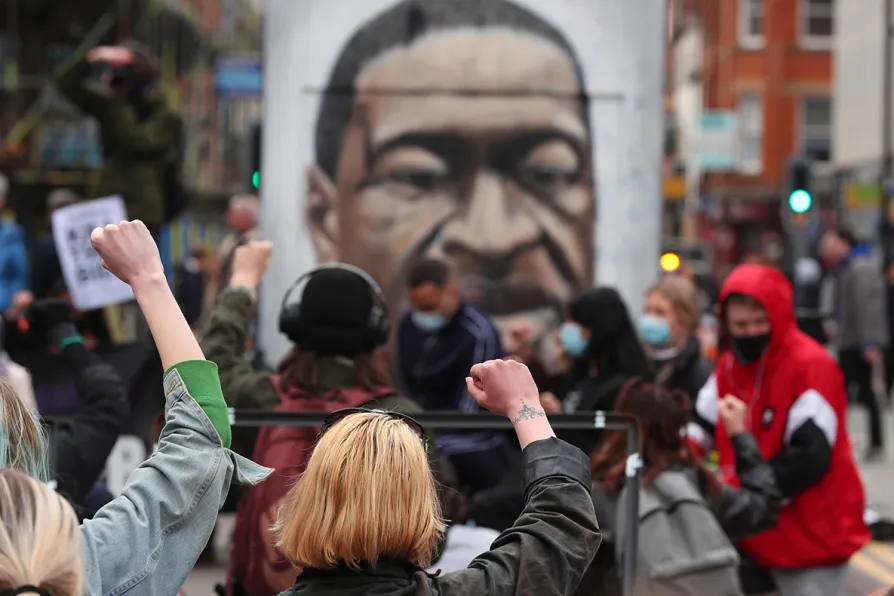Labour prospects in May elections may be irrevocably damaged by Birmingham Council’s costly refusal to settle the year-long dispute, warns STEVE WRIGHT
The history of moments and movements
KEITH FLETT looks at how social movements like Black Lives Matter can effect systemic and lasting change in society beyond removing statues and taking the knee

 Black Lives Matter demonstrators take a knee during a 'Kill The Bill' protest against The Police, Crime, Sentencing and Courts Bill in St Peter's Square, Manchester in March 2021
Black Lives Matter demonstrators take a knee during a 'Kill The Bill' protest against The Police, Crime, Sentencing and Courts Bill in St Peter's Square, Manchester in March 2021
A YEAR after the murder of George Floyd, there is no longer any question that Black Lives Matter is a movement and not just a moment in historical time.
That removal of doubt applies both to those who oppose racism in all its forms and those who see nothing fundamentally wrong with discrimination continuing to exist.
Arguments remain over statues, with the fallen statue of slaver Edward Colston now on display in a Bristol Museum awaiting a decision on its final resting place.
Similar stories

Research shows Farage mainly gets rebel voters from the Tory base and Labour loses voters to the Greens and Lib Dems — but this doesn’t mean the danger from the right isn’t real, explains historian KEITH FLETT

A recognition that individually we are powerless both politically and socially is essential, writes GORDON PARSONS

RON JACOBS recommends a book filled with history and political theory that provides both a basis and inspiration to create a way forward











